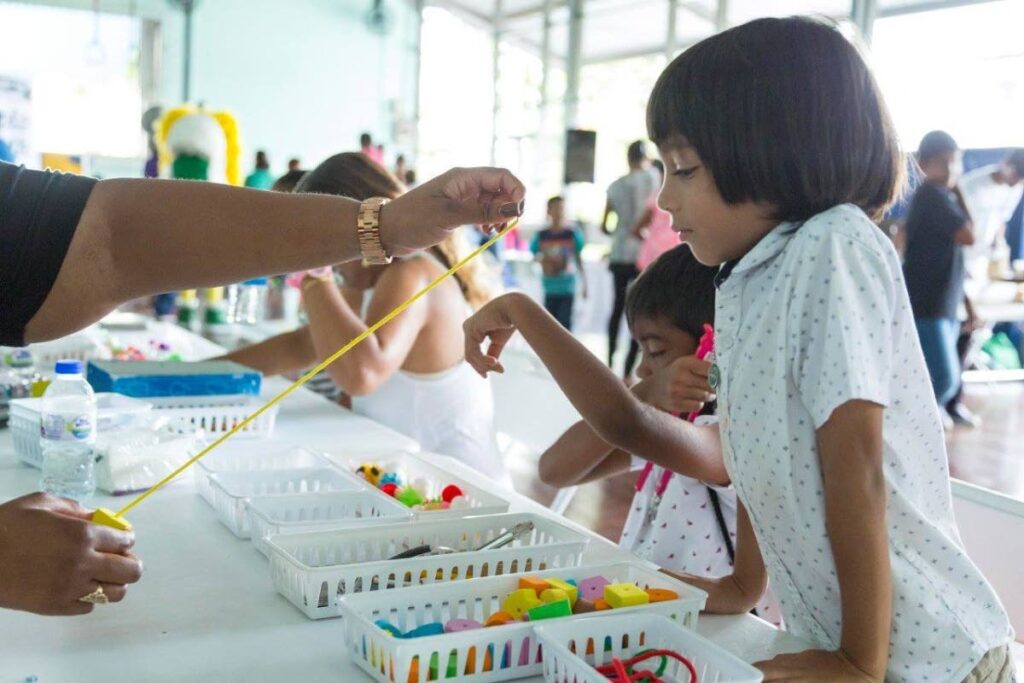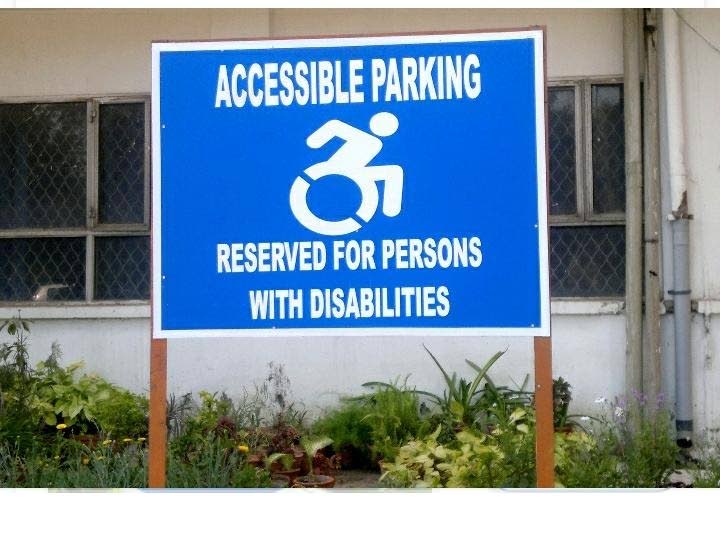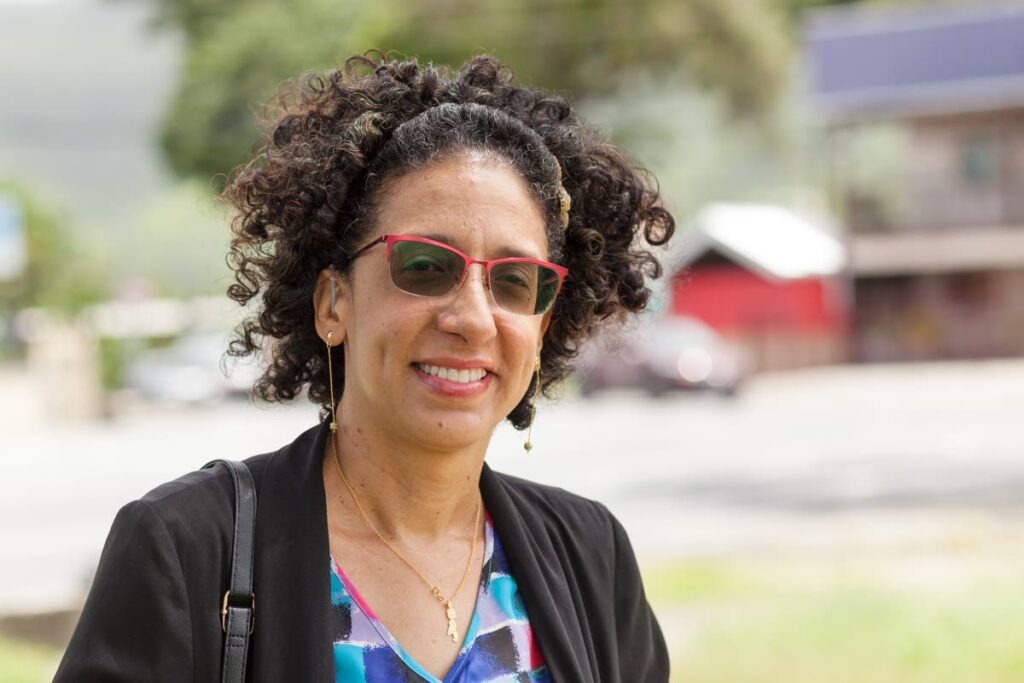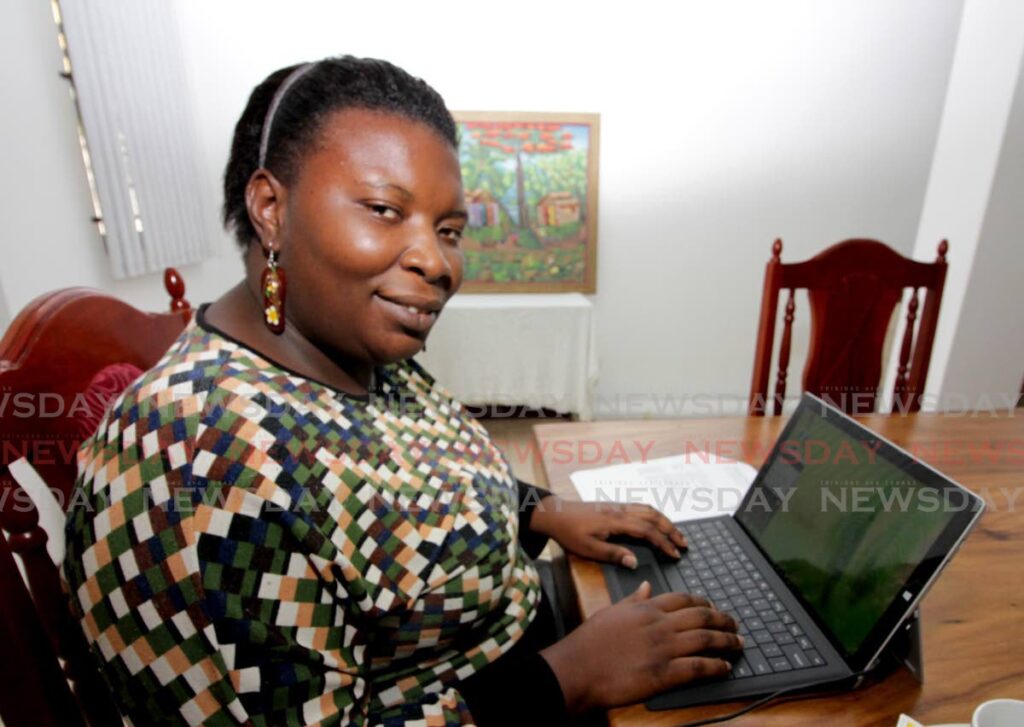Seeing the disabled as able: UN agency to fund review of laws, services in Trinidad and Tobago

Imagine walking into a store and not being able to communicate quickly or easily with the staff.
Adding to your frustration, other customers behind you are beginning to lose patience with your inability to explain yourself, causing you to leave without getting what you needed.
For most being a person with disabilities in TT not only means having limited access to basic services but also at times dealing with discouraging attitudes from the public.
Despite these challenges, the issuance of a US$300,000 grant from the United Nations (UN) has reignited hope that TT's institutions and perceptions can be improved to better include the disabled.
The grant which was issued by the UN Partnership on the Rights of Persons with Disabilities (UNPRPD) will go towards formulating policies to review legislation while addressing discrimination.
While the grant promises to change the way the disabled are seen and treated, it won't be easy owing to several factors.
Dr Taralene Malcolm, the non-communicable disease adviser for the Pan American Health Organisation (PAHO) and lead on the project it aims to promote long-term change through legislative review, and short-term changes by ramping up an aggressive public information campaign on inclusion and acceptance of the disabled.

"We had a stakeholders meeting where we presented to the stakeholders the challenges that were found and then identify those priority areas that could be included in the grant, keeping in mind that the grant is for two years and it's US$300,000 so we have to be practical, we have to be realistic and coming out of that stakeholder meeting we were able to prioritise and identify the key areas for implementation in this phase of the grant."
The two implementing agencies of the grant are PAHO – which will lead the legislative review using US$170,000 – and the UN Population Fund (UNFPA) which will use US$130,000 to compile data and begin capacity-building.
While there has been generally positive feedback from stakeholders, researchers and co-ordinators alike may have to start from scratch in some areas.
Where is the data?
Among the challenges in structuring the project and determining which areas were most in need was the lack of current data, Malcolm said.
This is a crucial gap in any policy-making exercise as up-to-date information informs which areas are most in need of development.
Newsday reported on the initial phase of the project last July and the absence of critical data was also highlighted then as a limiting factor.

Research assistant Julia Ribeiro said the lack of basic information can be a severe hindrance to the goals of the project.
"What is the employment status? What is the education level status? We don't even have information on how people with disabilities are distributed across TT," she said.
"How many are in each county? How many people acquire disabilities versus how many are born with disabilities? We don't have that information."
Ribeiro, who is hearing-impaired, said she was not taught at a special-needs school and was taught to speak in Canada.
"I've been told verbally that I'm the only person in TT and the Caribbean that can listen and speak without the use of sign language but I'm a researcher, I need to see the data to prove that."
Malcolm said plans are being developed to introduce more thorough data-collecting techniques while relying on information gathered not only from the government but also academics and private sector companies.
"One of the key priorities is to develop a mechanism to facilitate standardisation of data so whenever national surveys are being done this particular guideline or checklist will be able to help people.
"Whether it's being done by the Central Statistical Office (CSO), universities, the UN, whoever is doing a national survey they will be able to use this instrument as part of the grant as a checklist to ensure the right questions are being integrated into their questionnaire."
Visibility key to changing public attitudes
While the formulation of any policy must be guided by relevant, up-to-date data, the success of these policies often hinge on the support of stakeholders.
Ribeiro said interviews with participants in the education and skills-training sector showed there was hesitancy by some teachers to integrate disabled students into classes.

She said there was a perception among some teachers and principals that disabled students would "slow down" the pace of teaching, but argues that in many cases special-needs students have been successfully introduced into regular classes with the right support.
She said key to overcoming this was proper visibility of students success stories.
"Teachers and principals say they don't have training and I found out that may not be entirely true, we just need more people who teach to visibly see how having a mainstream education system that is inclusive for people with disabilities can work.
"I think what's missing is a lot of people can't see that an autistic child can be in the classroom, and you can still deliver your curriculum and meet the goals in the coursework.
"People aren't seeing it because we don't have it active in TT, it's not visible so they will be hesitant and will be afraid of it slowing down the curriculum."
Ribeiro said the project would also focus on building the capacities of the differently-abled to lead and manage non-governmental organisations which cater to their members.
She said stakeholders must start seeing the disabled as an opportunity to enhance productivity instead of being a problem.
Legislative review needed
In terms of a legislative review, Malcolm said the project intends to focus on the Education Act, the Mental Health Act, the Immigration Act and the Equal Opportunities Act.
She said there isn't enough focus in the legislation that facilitates the disabled and that the review is required to reflect the needs of vulnerable groups.
For this exercise, PAHO will partner with the Office of the Attorney General and Legal Affairs, other government agencies, non-governmental organisations and the disabled community.
"The plan is to train people with disabilities, policy advisers within the different ministries and other professionals who are part of the process that usually develops draft legislation, so we will train them on how to review and how to give feedback, so when there is any national legislation being developed people with disabilities feel empowered to know how to take part in that process.
"We also plan to establish a legislative review panel, so we will have people on the panel that will review the legislation and prepare drafting instructions or draft amendments of the legislation."
Using the example of the Equal Opportunities Act, Ribeiro said the use of language in certain clauses can exclude capable people from the workplace, and noted that the exercise would seek to assess how concepts of reasonable accommodation for employers can be enhanced to apply to the disabled.
"I'm hearing-impaired, I need a hearing aid so for me to hear on a landline in an office, I need an assisted device attached to it, so an employer can say, 'No we're not going to assist you in buying that.' But in other countries that I have researched as part of the report there are guidelines as to how to assist employers coming up with reasonable accommodations that would not severely affect them financially."
Ribeiro said to further include people with disabilities in the conversation special training will be provided to stakeholders to understand what is being proposed.
While the final word on any approval on amendments ultimately comes from the Parliament, Malcolm said involving representatives of different ministries was crucial to make the process easier for when the time comes for approval to be made.
Unifying the NGOs
Malcolm said NGOs, especially advocacy groups, hope to strengthen their capacities to operate and serve the disabled community.
She said a major limitation for NGOs remains access to funding and felt the project could be used as a forum to unify the groups in a structured way to act collectively.
"There are several organisations in Trinidad many of them offering the same services, offering or targeting the same disabilities so there is fragmentation, so they are competing for the same resources, so we are looking to build capacities so they are able to develop a proposal to seek funding, while strengthening the umbrella organisation.
"What we have to do is make it a unified approach as opposed to everyone being on different levels."
Ribeiro said she has also noted the lack of unity among stakeholders and while a slowdown in the functioning of groups can be due to a lack of capacity, to a shortage of funding, the project will seek to address these issues.
The next two years promises to be a very busy one for Malcolm, Ribeiro and the participants as they seeks to address long-standing issues in the welfare and treatment of the disabled.
Malcolm said she knows that many people living with disabilities are weary of such programmes and the promises they bring, often seeing them as ineffective in applying real change but urged them to be part of the discussion.
"A lot of people from the community of disabilities say they are tired of hearing over and over that things will be done but year after year things remain the same.
"We want to institutionalise the changes we are working towards and that's why we're making sure it's multi-sectoral, so it's not just the UN or not just the government but it is diverse and together we're able to make that change."


Comments
"Seeing the disabled as able: UN agency to fund review of laws, services in Trinidad and Tobago"